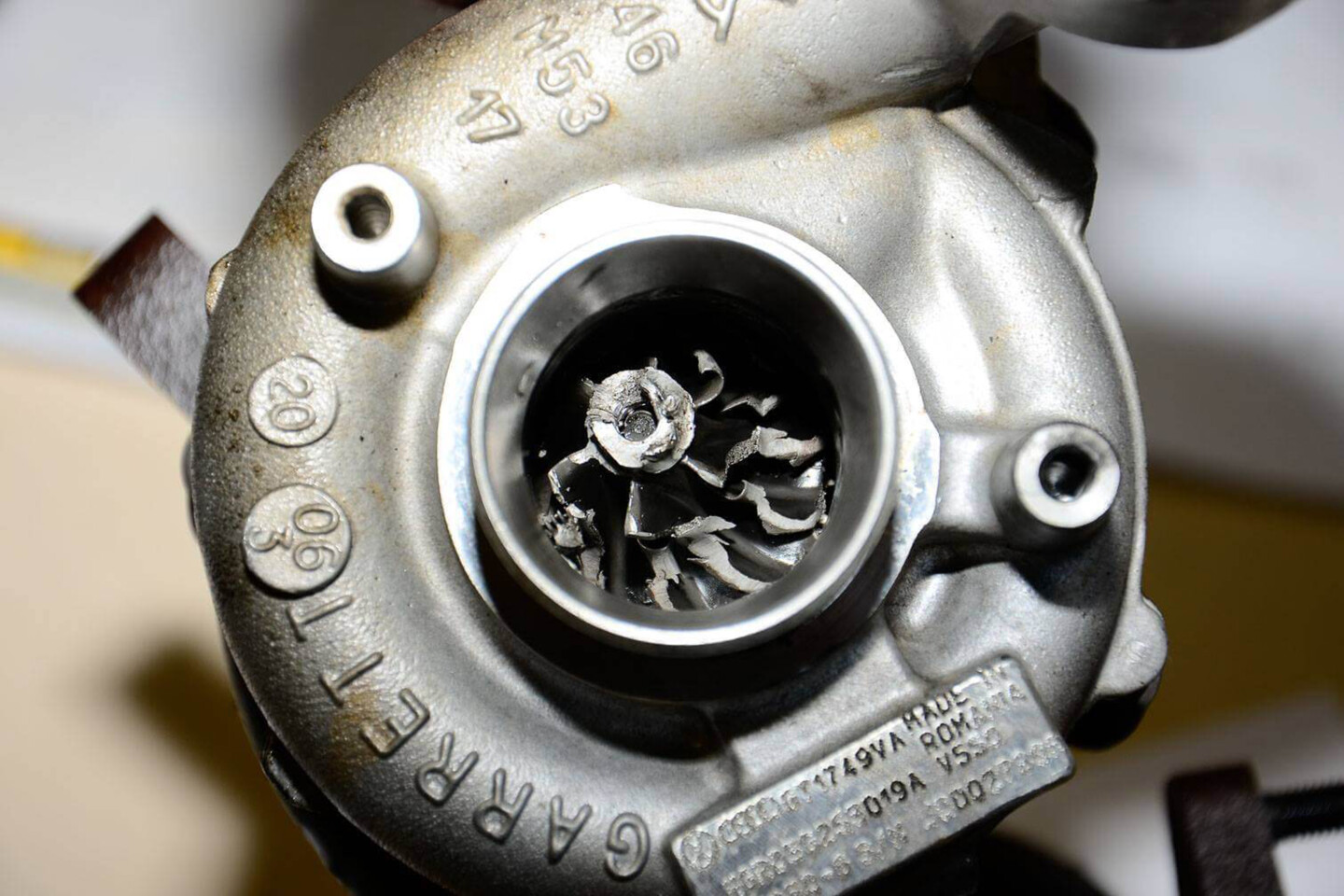It is no secret that dirty oil can really do serious damage to your engine. Left unchanged, used oil can allow bearings to prematurely wear, and other moving parts to come apart in grand fashion. Dirty oil can also be one of the biggest causes of turbo failure. Knowing this, I thought it might be time to take a look at how maintaining your engine oil quality is vital to keeping not only your engine healthy, but your turbo happy as well.
For starters, you need to understand how oil and lubrication are involved in optimizing turbo performance over the life of this device. Many studies have shown that contaminated oil is one of the biggest causes of turbo failures in the diesel industry
Precise Spinning
Turbocharger bearings utilize incredibly precise operating tolerances and are subjected to unbelievably high rotational speeds. Together, this presents an engineering challenge that is vastly different from other bearing systems in an internal combustion engine.
To protect these mechanical marvels, the oil used to lubricate the bearings needs to be clean, the correct grade/viscosity, flow as needed, and be delivered immediately when the turbocharger starts to spin. If one or all of these does not occur, the turbo is sure to fail.
Viscous Support
Like engine bearings, turbo bearings rely on the hydrodynamic principle to survive. In other words, the oil supports the rotating parts, so they do not make physical contact as they spin. This support is highly reliant upon using the correct viscosity oil. With an improper viscosity, the oil will not reach the converging sections and no pressure will be generated.
A typical turbo can spin at upwards of 100,000 to 150,000 rpm, so the proper oil is needed to prevent the turbo-shaft bearings from failing. Oil is used to create a cushion between the moving parts of the turbo and to accomplish this, the turbo’s shaft must be perfectly balanced or no simple oil film will prevent it from tearing itself up at those high rotational speeds. In layman’s terms, the oil is too thin to properly support the shaft and it will contact the bearing with catastrophic results — turbo failure.
Not only is precision balance a must, but there must also be minimal play in the bearings. These two aspects work together to create zero lateral movement in the shaft. A high-quality oil is essential to protect the turbo in this harsh application of high temperature, high RPM, and very tight tolerances.
So, what is the best viscosity for a turbo? That is a question with many correct answers. What I mean is, the right viscosity will vary depending on where you live. For instance, Cummins recommends 15W-40 if living in a climate with temperatures greater than 10 degrees Fahrenheit. If your climate ranges between 0 to 30 degrees Fahrenheit and you do not use an engine heater, a 5W-40 is called for. However, if you live in the same 0- to 30-degree climate and use a block heater, 10W-30 is acceptable. In other words, trust your manufacturer’s recommendations — they have taken into account the needs of the turbo combined with the rest of the engine.
Keeping It Clean
Oil viscosity is one thing, but since oil is basically getting “dirty” as soon as an engine starts running, that means foreign substances such as dirt, debris, or (gasp) metal particles will quickly find their way into the oil that is used to cool and lubricate the turbocharger’s moving parts. This contamination will degrade the oil’s performance, increase wear, and cause permanent damage. When this occurs, expensive repairs or even complete replacement can be necessary.
There are a lot of potential ways that contaminants can become part of your lubricating lifeblood. What’s more, these contaminants can vary in size and properties, and each type possesses its own wear characteristics.
For example, combustion residue (carbon) can occur when incomplete or poor combustion takes place (think delete tune and blowing black smoke). Another cause could be heavy blowby because of cylinder and/or piston wear. Finally, leaking injector seals can allow excess fuel into the oil supply. This can ‘polish’ and degrade bearings and rotating parts.
Another contaminant to oil can be by way of engine component wear. As parts wear, minute metal particles can be suspended in the oil and will be delivered to the turbo via the turbo’s oil system. You can surely imagine how this can compromise bearing performance and longevity.
Keeping Turbo Failure At Bay
And if there is a more common way of having contaminated oil other than poor vehicle maintenance, I would like to know about it. Poor maintenance has been proven to lead to dirt and silica being found in engine oil. I don’t need to tell you what that can do to bearings, the turbo shaft, and the thrust assemblies. What I am stating, is to be sure and use a quality oil filter, and change it as recommended. But wait, there’s more…
If your engine’s Crankcase Ventilation System (CCV) is blocked-up because of poor maintenance, this can lead to a build-up of acid in the oil. No filtration system can fix this. When acid levels get out of whack, corrosion is your next concern. And you might not realize it, but your cooling system can also affect your oil quality.
Let’s take for instance the cooling system in your truck has a leak. This could be because of a bad gasket or even a leaking EGR system. This can cause high levels of potassium in the oil. While the potassium itself might not cause a problem, the coolant surely can contaminate the oil and contribute to turbo failure.
It’s crucial to remember that it is not just that the turbo needs oil. It’s also critical to have the proper viscosity and clean oil as well. In case you are one of those readers that needs to know everything, the engineering definition of viscosity is the friction between oil molecules which generates a resistance to flow over a fixed surface. Hence the common reference to “thickness”.
What I am trying to tell you is that you need to have a proper maintenance schedule. If you are not keeping the oil as clean as possible and utilizing the proper viscosity oil, you are asking for trouble. Remember, both of those are a prerequisite to avoiding turbo failure and increasing turbocharger performance and longevity.






